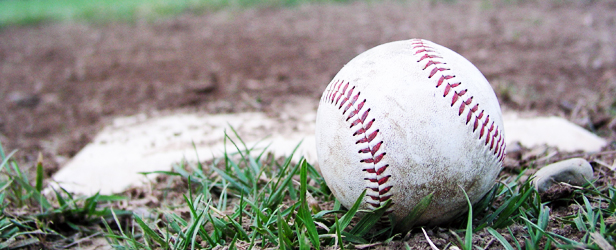
America's pastime is going through a change in attitude and culture in Major Leauge dugouts that is trickling down to the College and High School levels. Sports performance is more prominent in the overall development in young players. After listening to these four podcasts, you will not only have a better grasp of the "Why", but also the "How" of training baseball players and teams.
Here is a n excerpt from an article I wrote entitled An In-Season Training Guide for Baseball Pitchers.
Early specialization is a hot topic among youth sports and baseball has been one of the main culprits in the disappearance of the multi-sport athlete. Playing year round in addition to pitching lessons, hitting lessons, and personal training sessions creates a multitude of issues for a young athlete.
John O’Sullivan, author of Changing the Game, has listed many of the problems surrounding early specialization. This includes overuse injuries, mental burn-out, and reduced performance compared to that of athletes who play multiple sports.
Baseball Players, particularly pitchers, tend to be in a category of athletes that do not see the connection of increased strength and power with increased performance during gameplay. This may be due to the bequeathed attitudes from pitching coaches, private instructors, baseball coaches, and parents. Lifting weights has never really been associated with playing baseball.
The overall attitude young baseball players have toward training may be swinging to the good side, though. Carlo Alvarez admits, “Players are more prepared now. They train harder and come back with different training methods." Alvarez, who is the coordinator of sports performance for the Pittsburgh Pirates has seen a change in the overall disposition of training with the variety of players he sees. "They're smarter and will see right through your bullshit," he continues. Baseball players are starting to understand the connection between physical development and performance on the field.
To further reiterate my point of where the culture of training baseball players has come from, here is another excerpt from my article, Why Softball Players are Tougher than Baseball Players. Although, the title was not 100% accurate of what was included in the article, it was used to make my point.
I had the privilege of coaching some pretty mentally and physically tough baseball players. My favorite story is one of Schuyler Williamson who played catcher for Army. After receiving letters from his little brother questioning the direct leadership, Schuyler left a pro baseball career after being drafted by the Detroit Tigers to join his little brother in combat.
Although, some of the baseball players I have coached in the weightroom were flakes, most of the issues were attributed to the culture and the dinosaur coaches when it came to training. No other sport has the amount of voodoo nonsensical training methods rooted in good 'ole boy ideology like baseball. The culture thankfully is changing, but there are still cases where you hear these gems from managers, pitching coaches, and parents.
- Pitchers should run long distances the day after they pitch to "flush the lactic acid out of their systems." Hey, skipper. That soreness is from 60-80 high intensity bouts of unnatural arm torque. The lactic acid was gone a few hours after. That is if the less-than-a-second physical excursion was enough to produce any. Now if they are doing LSD type training as a way to manage recovery, then ok. Just stop using the big words that are wrong.
- Pitchers should only bench press with dumbbells. If you say this because you want your pitchers to use a neutral grip, then I agree. But all to often this is associated with a range of motion issue, Wouldn't dumbbells actually increase the ROM due to the lack of a bar hitting the chest?
- No overhead pressing. Look I get it. The risk could be high IF you have an athlete predisposed to impingement based on the AC joint. But, if you are going to eliminate an exercise based on fear, please make sure you clear two things up.
- Have you ever had an athlete injure their shoulder from overhead pressing? Yes, I know in can happen but in your experience, did it ever happen.
- If you are so concerned with the health of the shoulder capsule, why do you have weighted dips, cheating (kipping) pull-ups, decline presses, or Overhead KB swings or any other exercises that put unwanted stress on the shoulder?
Regardless, the arm care of baseball players, specifically pitchers does require more precautions.
As the host of the Elitefts Sports Performance Podcast for 64 episodes, I had the privilege to interview four of the best coaches on planet earth who have experience coaching professional baseball players. Those coaches include:
Carlo Alvarez, Pittsburgh Pirates, Cincinnati Reds, Cleveland Indians, St. Xavier HS (OH)
Eric Cressey, Cressey Sports Performance
Mike Boyle, Mike Boyle Strength & Conditioning, Boston Red Sox, Boston University, Boston Bruins
Bob Alejo, NC State, Oakland As, UCLA, UC Santa Barbara, Chico State
These coaches have been pioneers in the sports performance field and have done more than almost any other group to change the culture and climate and training for baseball. I hope you enjoy listening to these as much as I did interviewing.
LISTEN: Major League Sports Performance in the Steel City
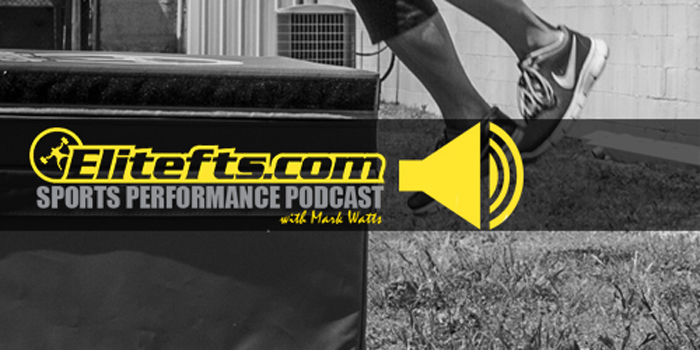
Carlo Alvarez, Coordinator of Sports Performance for the Pittsburgh Pirates
In 1979 I was six years old and my childhood memories consisted a lot of Steeler and Pirate games. That year, the Steelers and Pirates both won world championships.
That summer, I probably heard Kool & the Gang's "Celebration" and the Pirates adopted theme song "We are Family" from Sister Sledge about a half-million times that summer. Scenes of Willie Stargell, Dave Parker, Kent Tekulve, Bill Madlock, Omar Moreno, John Candelaria and their manager Check Tanner filled our lives and gave the entire city hope.
My family was a baseball family. My grandfather was a legend and coached baseball starting in 1947 and won the AAABA National Championship in 1965. They renamed Alton field Jim Rawe field and it was one of the proudest moments for our whole family. I am just glad he got to see it before he passed away in 1997. My uncles played ball and it is rumored that my Uncle Mic had the sickest pick-off move to 2nd for a left-hander in the history of the game. They grew up watching games at Forbes Field in oakland and Pittsburghers still talk about "The shot heard 'round the world" when Mazoroski hit one out in the bottom of the 9th to win the 1960 World Series.
Fast forward to 1989 and I am sitting in Three Rivers Stadium with about 58,000 fanswatching them take on the Darrell Strawberry, Doc Gooden and the Mets. I was in the back of a Hum-V in Fort Bragg, NC when my boy Pete Long gave me the play-by-play and I found out that Barry Bonds didn't have the arm strength to throw out Sid "No Knees" Breem at the plate who scored from first. And that is why Bonds should never be in the hall of fame.
This past year, the energy in the city of Pittsburgh and the emotion that flowed from the best stadium in baseball, PNC Park, could not be denied. So where is all this going? Well, when I found out that one of the most respected strength & conditioning coaches I knew was hired by the Pirates to oversee the sports performance of the entire organization; I was elated.
Carlo Alvarez, has been a mentor to so many athletes and coaches and he take his expertise to the Steel City to overseas 14 strength coaches and build a foundation in an organization on the rise.
This interview encompasses the values and character that Coach Alvarez brings everyday and makes everyone around him better. Enjoy.
Topics included in the Podcast
1. Setting expectations
2. Spring Training organization
3. Communication trumps education
4. How baseball players have evolved
5. Reinforcing relationships with private sector coaches
6. Critical components of training at the high school level
7. Coach Alvarez's influences in coaching
8. How the field has changed in terms of methodology
9. Advice for young coaches in the field
LISTEN: Eric Cressey on Performance, Baseball, and Staff Synergy
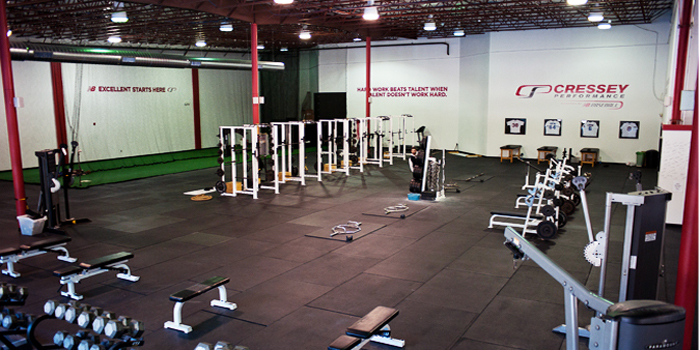
There are coaches in this industry that have done things backwards. Too many "coaches" start as experts, complete with blogs, eBooks, and unsolicited client testimonials written by themselves. This practice of self-proclaimed expertise is not only becoming easier, but more common.
Eric Cressey has earned every accolade he's received through unrelenting passion to improve as a coach. He didn't start as an expert; he earned the title. The respect from his colleagues and the admiration from his athletes comes for the same place: Cressey's selfless work-ethic to help coaches and athletes achieve what they wouldn't without him.
The message Eric Cressey delivers in the form of continuing education comes not from a desire to promote himself but from a sincere obligation to educate and motivate the people he contacts. Cressey has paid his dues in an industry full of short-cuts.
Topics Covered in This Podcast
- Luck is Where Preparation Meets Opportunity
- The Biggest Changes Eric Has Seen in Baseball
- Assessments for Athletes
- Communication with Coaches
- Do No Harm, Do No Good?
- Educating Athletes
- Best Schedule Scenario for In-Season Training
- This May Not Be Bad, But Is There Something Better?
- Emotional Separation of Training
- Traits of Elite Level Players
- Torso Injuries in Baseball. Why?
- "There's What You Know and What You Can Implement" — Mike Boyle
- Eric Cressey's "Bang-for-Your-Buck" Exercises
- Deadlift Tips for Athletes
- Speed Training for Baseball
- Replicating and Simulation Versus Carryover on the Field
- The Importance of Staff Synergy
- The Law of Repeated Exposures
- The Best Advice for Young Coaches
- How to Reach Eric, Upcoming Events
LISTEN: How Mike Boyle Became a Coach of Influence
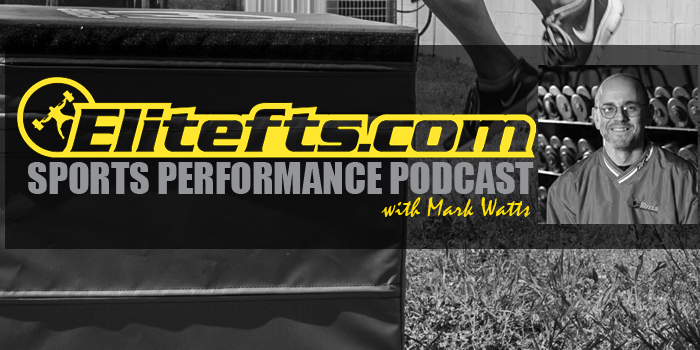
Do you want to become a highly successful, universally respected, and well-recognized strength and conditioning professional? Follow this full-proof plan and you will reach all of your goals:
Work your ass off for 20 years by giving everything you have to the athletes you coach and the staff you interact with.
Once you have done that, you may be close to where you want to be in the strength and conditioning industry.
This is something Mike Boyle has figured out and why he's the coach he is today. Boyle's influence stretch far beyond the strength and conditioning spectrum and has been a unbelievable resource for coaches, athletes, and managers.
Boyle has the uncanny ability to combine an unapologetic and honest demeanor with a selfless, unrelenting commitment to helping others — two qualities rarely seen except for in the most experienced and knowledgeable coaches. After listening to this podcast, you'll understand how and why I feel this way about Coach Boyle.
Topics Covered in this Podcast
The Beginnings
- How Coach Boyle Started
- Having Mike Woicik as a Roommate
- Appointing Himself as the BU Strength Coach
Training
- Training for Hockey
- Getting Strong is Getting Strong, Regardless of Sport
- Why There Is a Steroid Problem in Track & Field
- Defining Strength in an Unconventional Way
- Unilateral Training for Sports
- The Bilateral Deficit Research
- The Influence of Mark Verstagen
- How a Coach Defines Strong vs What Is Strong for Their Sports
Youth Training
- What We're Doing Wrong
- The Matheny Manifesto
- The 10,000 Rule
- Greg Rose's Cyclone Circuit
- Basic Motor Qualities
- Early Specialization
- Soccer in Brazil and Baseball in the Dominican
- The Number One Problem in Youth Sports: The Parents
- The Responsibility of the Strength Coach
Staff Development
- Pick the Right People
- Get People Who Want to Work
- Educating through a Solid Set of Resources
- Book Club for Professional Development
- Making the Coaches Do the Workout
Advice for Young Coaches
- Unlike the Rest of the Business World
- Make Yourself Invaluable
- What Will Our Conversation Be Like When I See You
- Recommending Coaches for Future Jobs
How to Reach Coach Boyle
LISTEN: National Championships, Gold Medals, and Money Ball - The Bob Alejo Interview
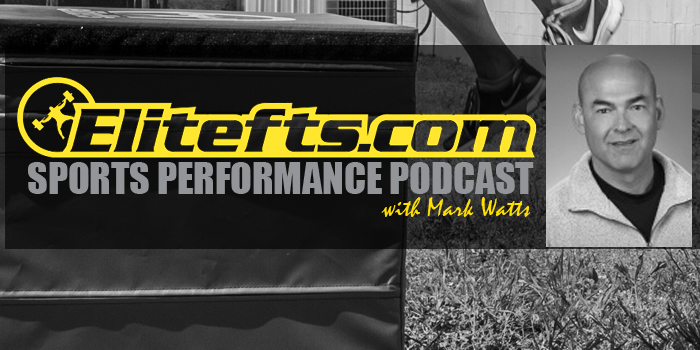
Bob Alejo is a coach who I've always looked to as one of the pioneers in the field of strength and conditioning. Since the first conference I attended in 2002, Alejo has been a fixture at clinics and conferences for good reason. Alejo has been an open book and has never hesitated to pass his wisdom on to others.
After 25 National championships at UCLA, two stints with the Oakland A's, and a gold medal in Bejing, Alejo has been able to utilize the talent he was presented and kept his athletes healthy and performing at a high level. Now, as the Director of Strength and Conditioning for North Carolina State, he is bringing decades of knowledge and experience to the WolfPack.
In this interview, Alejo dates himself purely on the amount of perspective he brings to the profession. His advice on communication and rationale on injuries in athletics is both eye-opening and refreshing. Not many coaches have as much success on so many sports at the college, professional, and Olympic levels.
Topics Covered in the Podcast
- How Coach Alejo Got Started in the Industry
- How the Game of Baseball has Progressed
- Communication with Athletic Trainers and Physical Therapists
- Abdominal Injuries in Baseball
- Baseball Players vs Throwers
- Tommy John's Epidemic...A Different Take
- Total Body Strength is the Best Way to Increase Bat Speed
- More Resiliency in Younger Arms
- Innings Thrown vs Pitches Thrown
- Monitoring the Bullpen
- Baseball is Performed from Your Toes to the Ends of Your Fingers
- Assessments
- Approach Athletes Like They're Damaged Goods
- It's Not A One-Day Deal
- Go-To Exercises
- There Is No Exercise You Should Avoid
- Pressing Overhead for Overhead Athletes
- Finding the Research
- About Balance More Than Movement
- In-Season Training
- High Intensity during the Season
- Decrease the Slope of the Decline by Lifting Heavy
- If You Can't Gain Strength at the Rep Range, How Can You Maintain It?
- Low Volume Reduces Fatigue and Soreness
- Conditioning and Speed
- Rest, Sets, and Intervals
- Quantify Everything
- Low Intensity Tempo Work
- Tempo to Speed Endurance to Speed
- Everything Comes Down to First Step Speed
- Strategies to Build Rapport with Sport Coaches
- Everything Data Driven!
- Start Correlating Your Data
- If You Are Going to be Fast, You Need to be Strong
- If You Are Strong, You Can Change Direction
- Best Advice for Young Coaches
- Technology Has Enabled Coach to Contact Anyone
- You Don't Need to Guess Anymore
- Call Your Peers
- Your Group is Your Group — Get Them Better First.
Elitefts™ Sports Performance Podcast on iTunes
Articles by Mark Watts
Olympic Lifting for Athletes: Using Static Holds to Improve Technique
Head Games: Training the Neck to Reduce Concussions
The Fastest Sport on Ice: Things You Don't Know About Bobsled
Tips to Crush the Combine Tests
An In-Season Training Guide for Baseball Pitchers
Individual Training in a Team Setting
Off-Season Training for Football (with 8-Week Program)
What is Really Wrong with Strength and Conditioning
The Last Sports Performance Podcast
Olympic Lifting for Athletic Performance
Sports Performance Coach Education Series
WATCH: How to Find a Strength and Conditioning Job
WATCH: Becoming a Mentor to Young Coaches
WATCH: The Four-Step Coaching Process
WATCH: 5 Strategies to Perform More Work in Less Time
WATCH: Why Communication is Key to a Better Coaching Career
WATCH: A Better Way to Train High School Athletes
WATCH: How to Implement Auto-Regulatory Training in a Team Setting
WATCH: Pre-Workout Circuits to Optimize Training Time and Maximize Performance
WATCH: Hypertrophy Circuits for Athletes in a Team Setting
Coaches Clinics
WATCH: Two Bench Press Mechanical Drop-Sets for Hypertrophy
WATCH: Two Lateral Speed Drills with Bands to Improve Change of Direction
WATCH: Adjusting the Glute-Ham Raise to Optimize Your Training
WATCH: Basic Linear Speed Acceleration Drills in a Team Setting
WATCH: Kettlebell Training for Team Sports
Mark Watts' Articles and Coaching Log









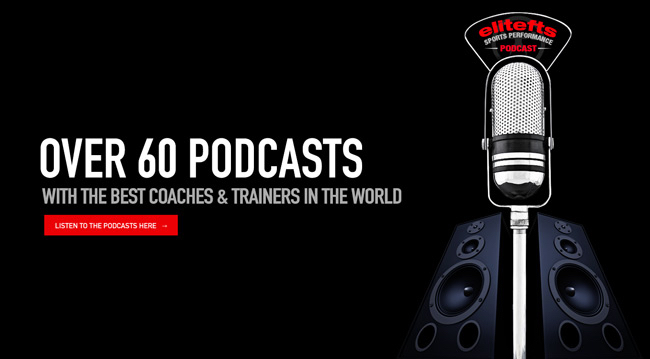





1 Comment